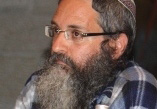118 Lessons

The Community vs the Individual
Rabbi Haggai Lundin | 20 Shvat 5784

For Love of the Holy Tongue
Rabbi Moshe Erenreich | 14 Shvat 5784

Can Z'chut Avot Ever "Run-Out"?
How does Z'chut Avot (merit of our fore-fathers) work? Why should their actions thousands of years ago, still be effective, say if over the more than 100 generations, we may have done many more sins that eventually out-weigh even their many merits? And if so, does that mean that there possibly may not be a ge'ula (redemption), if we really don't deserve it? Especially today, when most Jews (especially outside of Israel), aren't that observant, this topic is particularly pertinent. As usual, Rav Kook zt"l has an innovative approach to the topic. (Rav Kook, Ayn Aya Shabbat v, 31)
Rabbi Ari Shvat | 17 Elul 5783
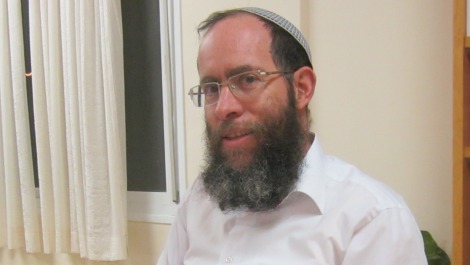
Is Religious Faith Simply a Matter of Convenience?
Isn't it simply "convenient" for us to believe that there is something above and beyond the material world? It is not just "convenient" to believe that there is a G-d Who sees everything and thus gives meaning to life? Could it be that it is just this "convenience" that causes us to believe in G-d?
Rabbi Shmuel Ariel | Tevet 6 5783
How Do We Know There Is a G-d?
How do we know there is a G-d?
Rabbi Oriel Twito | Kislev 21 5783
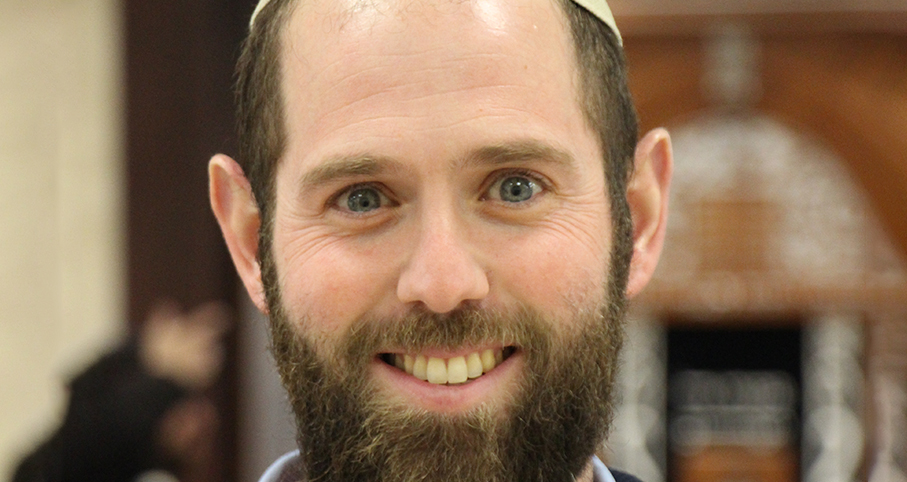
How can I trust the transmission of the Torah?
Our faith is based on 600,000 adult males who saw with their own eyes and experienced receiving the Torah at Sinai, and transmitted this to the generations afterwards. Why shouldn't we say that, just like other people had folklore and legends that they believed, we also had such tales throughout the period of the Judges and First Temple, and that at the time of Ezra the Scribe, he gathered them all together into one book that we now call the Torah? After all, the Talmud says that during his time, parts of the Torah were forgotten and he reinstated them.
Rabbi Elyashiv Kafka | Kislev 15 5783

How Can I Trust the Truth of Sinai?
How do we know that Moshe Rabbeinu did not do some kind of magic of lights and pyrotechnics that caused the nation to believe that that's what happened?
Rabbi Elyashiv Kafka | Kislev 8 5783
How Can I Believe In G-d if I Can't See Him?
How Can I Believe In G-d if I Can't See Him?
Rabbi Hagai Lerrer
Do Our Prayers Make a Difference?
The Torah teaches us that there is Reward and Punishment in this world for our deeds. We see this in many places...We also see the power of our prayer in this framework...But on the other hand, we certainly cannot force G-d to change His mind, and we must accept what is decreed upon us...My question therefore is: The prayers that I recite, and blessings that I receive – do they have influence?
Rabbi Hagai Lerrer | Heshvan 24 5783
Is the Faith of Israel the Absolute True and Correct Faith?
For me, as someone searching for the truth of life, my question is: Is Judaism 100% correct? I have tested the Jewish faith from many angles – its tradition, its logical proofs, its prophecies – and they all seem to indicate that Judaism is the right approach. But is there even the smallest possible chance that I am mistaken? Could it be that the tradition was corrupted, or that the events in the Torah exaggerated? Could the proofs be incorrect because we have forgotten to include one detail in the equation? Could it be that the fulfillment of the prophecies is simply an amazing coincidence? I would like to know: Is the path of Judaism and its faith absolutely certain?
Rabbi Oriel Twito | Heshvan 17 5783
How Can We Know There Is a G-d?
How can we know with certainty that there is a G-d?
Rabbi Oriel Twito | Sivan 18 5782

Emuna From the Cradle
The main mitzvah upon which all the other mitzvot are structured is emuna, certainty of G-d. The Gemara tells us (Makkot 24) that the Prophet Habakuk "summed up" all the mitzvot into one, saying, "The righteous will live by his faith." Therefore, since we are obligated to teach our children to fulfill the Torah's commandments, it is clear that we must teach them emuna from a very young age – for that is the mitzvah on which everything else stands.
Rabbi Shalom Arush | Shvat 19 5782

Israel's Faith, Step By Step
Israel's Exodus from Egypt served as a preparatory course for the nation's great future, foretold at the very beginning of its creation to its Patriarch Avraham: "I will make you into a great nation… and the other nations will be blessed through you" (B'reshit 12,2-3). The meaning of the phrase "great nation" in this context is that we will be "close to G-d." As written in Va'et'chanan, "Who is a great nation like Israel, to which G-d is so close." However, to reach closeness to G-d, several steps are required.
Rabbi David Chai Hacohen | Shvat 5 5782
How Free Is Our Free Will
Question about our free choice between Good and Evil
Rabbi Oriel Twito | Tevet 20 5782
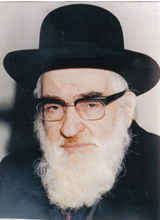
Pure Faith, Intellectual Faith
The relationship between the simplicity of faith and intellectual analysis
Rabbi Mishael Dahan, ztvk”l | Kislev 8 5782

Simple, Relaxed Faith – or Stormy, Questioning Faith?
Three rabbis contemplate emuna [faith] and how it intersects and works alongside knowledge and intellect.
Various Rabbis | Kislev 1 5782
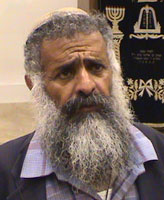
Emuna is Life
"Who is the man who desires life, loves days in which to see [and do] good" (Psalms 34,13). How fortunate we are to be healthy seekers of life, "believers sons of believers," and the descendants of Avraham Avinu, about whom the Torah writes, "He had emuna in G-d" (Genesis 15,6). All of Creation aspires to live life that is meaningful, grounded in a cleaving to the source of life. This is how the living G-d created mankind, imbuing it with this aspiration. As Moshe Rabbeinu made it very clear in his parting speech to the People of Israel: "And you who cleave to Hashem your G-d, you all live today" (Deut. 4,4)
Rabbi Yossi Badihi | Cheshvan 16 5782
When Faith is Tested
The loss of tzaddikim has an effect on the world. "Save, O Lord - for the pious are gone; for the faithful have vanished from among men" (Psalms 12,2). That is to say, when a righteous man passes away, the world suffers a loss of emuna and trust. Emuna diminishes because tzaddikim help ensure that it remains strong, and when they leave, it becomes weaker. Rav Tzvi Yehuda was a great man of emuna, and his loss left a great vacuum of emuna in the world.
Rabbi Zalman Baruch Melamed | Heshvan 9 5782
Why Does G-d Test Me With Such Difficult Challenges?
Rav Uriel Tuito of Beit El delivers an important answer to a series of similar but different questions on a critically crucial topic.
Rabbi Oriel Twito | Av 21 5781
